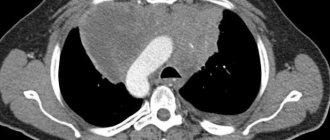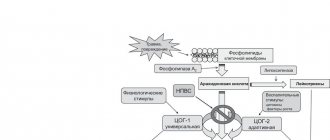Brain cells are in a constant state of movement and development. Neural connections are formed until a person’s death. There is a common belief in the minds of the average person that nerve cells do not regenerate. Is it a myth or reality? To answer, it's worth thinking about one simple question.
The human brain contains approximately 90 billion neurons. Many negative factors of the external and internal environment: be it alcohol, unhealthy diet, stress, hormonal imbalances, etc., destroy nerve cells. Moreover, this process is constant. We are not talking about just one, but about hundreds and sometimes even thousands of neurons that a person loses per day. Perhaps not every day, but with enviable consistency.
Question: what would happen to the human brain and to its “carrier” itself if the statement “nerve cells do not recover” turned out to be true? The answer is obvious.
Recent research has shed some light. To put it briefly and clearly, the body is capable of synthesizing new neurons itself, which replace the old ones. The main participant in this process is the hippocampus. Part of one of the oldest parts of the brain, the limbic system. It synthesizes about 700 new structures per day. And so throughout life.
The statement that nerve cells do not regenerate is just a myth. But there is some common sense here. There are factors that actually inhibit the synthesis of new fibers.
What causes slow down the production of new nerve cells?
The process of synthesizing new neurons and restoring the structure of the brain is called neurogenesis. Normally, the hippocampus “supplies” about 700 such cytological structures per day. But this is an average. It decreases significantly if a person leads an unhealthy lifestyle. Some factors slow down the process of cerebral tissue renewal.
No intellectual load
This is not so much about a formal tension of mental forces, but about a new point of their application. Regular crossword puzzles and popular Japanese Sudoku puzzles are suitable for training. Logic puzzles and exercises, special programs and educational games. If a person does not receive enough intellectual load, there is a high probability of gradual degradation. For the same reasons, patients with a low degree of mental activity are at greater risk of developing Alzheimer's disease.
Same lifestyle
Generalized characteristics. In fact, it may be a static or toxic environment, monotonous work, stereotypical activity. Office workers and people engaged in routine work are most susceptible to this. Changes in environment are needed to renew cerebral structures. Even minimal, banal things are enough: going to work by a different route, changing the traditional daily routine, etc.
Excessive nutrition
Science does not yet know enough about the negative role of nutrition regarding the restoration of nerve cells. According to some estimates, exceeding the caloric intake of food by 20% per day almost halves the rate of synthesis of new neurons. It is still impossible to say how true this statement is and whether it applies to all people without exception.
It is clear, however, that insufficient intake of vitamins and an incorrect diet with excess salt and animal fat have a negative effect on neurogenesis.
Chronic stress
Prolonged psycho-emotional stress does not improve health. During stress, the adrenal glands produce a large amount of hormones: cortisol, adrenaline, etc. They inhibit the synthesis of neurons, slowing down the process.
Alcohol
Alcohol is a clear enemy of healthy cerebral structures. Ethanol and its breakdown products accumulate in brain tissue. Previously, there was an opinion that alcohol directly destroys fibers. This is not entirely true. Cytological structures do not disappear anywhere, formally the amount of substance remains at the same level. However, the processes of the neurons are destroyed, which means the signal no longer passes through them. From then on, they are excluded from normal activities and gradually die. The process is truly destructive, but it is extended over time. With systematic alcohol consumption, disorders become more and more noticeable. The rate of neurogenesis drops by 50-70%, according to various estimates.
Use of certain drugs
Some drugs damage the brain. The use of psychotropic medications has a particularly negative effect on the condition of nerve cells. Recovering from them is not an easy task in itself. Tissues die as a result of blocking the transmission of nerve impulses. Special neurotransmitters are responsible for this process: dopamine and others. Such a harmful effect of neuroleptics and antidepressants is noticeable over the years. On MRI images of patients with a history of schizophrenia, the size of the cerebral hemispheres is significantly smaller than in healthy people.
Lack of sleep
The body's biological clock is designed in such a way that closer to night the synthesis of cortisol weakens and melatonin is more actively produced. It is capable of inhibiting many biochemical processes, and therefore the metabolism in cerebral structures slows down. Toxins, which under normal conditions are quickly eliminated, are retained in tissues, poison them and provoke the death of cytological structures. With systematically incorrect sleep patterns, the process becomes more and more aggressive.
If we take these reasons to the absolute level - constantly drinking, forgetting about intellectual development, indeed - the nerve cells are not restored or the speed of this process is negligible. In other cases, neurogenesis slows down, but does not stop completely.
Typical structure of a neuron
Does the opposite phenomenon occur when the intensity of neurogenesis increases? Yes, this is also possible.
What factors help restore nerve cells?
There are several ways to promote the natural recovery of nerve cells.
Rich emotional life
As a measure to prevent monotony. There is no need to work specifically in this direction. It is enough to maintain stable social connections, establish new contacts, communicate with people, change your way of activity from time to time, fully relax and not stay in one place. Positive emotions contribute to the production of neurotransmitters, substances that enhance neurogenesis.
Proper nutrition
By proper nutrition we mean a fortified diet. At a minimum, you need to adhere to a number of simple rules:
- Limit salt intake to 4-6 grams per day. More is not necessary, since sodium ions cause narrowing of the arteries. Blood circulates worse, brain structures do not receive enough nutrients and oxygen. Consequently, they begin to work more slowly. Salt cannot be completely eliminated either. Without sodium, the electrolyte balance will quickly be disrupted. This is fraught with dangerous heart complications.
- The diet should have enough vitamins. Their main source is fruits and vegetables. The share of plant foods should be about 50-60%. Plus or minus. It is best to discuss this issue with a nutrition specialist.
- Animal fat should not be excluded from the diet. But on the menu it is given second place at best. Many essential amino acids can only be obtained from animal products. But preference should be given to dietary meats (chicken, turkey), fish and seafood.
- Semi-finished products and canned food are completely eliminated from the menu. They contain huge doses of salt and a huge amount of chemical additives. Such products do not carry any useful load and provide nothing to the body.
- A large role is also played by the drinking regime. Water is a universal solvent that accelerates metabolic processes. Normally, you need to consume about 2 liters per day, not counting liquid foods. If a person has kidney problems or hypertension, the amount of fluid is limited. The same is true if a woman is undergoing gestation. During pregnancy, the amount of fluid is calculated individually.
Regular intellectual exercise
Mental work helps restore brain neurons. There are many types of activities: crosswords, puzzles, reading books, analytical work, problem solving. A good help is studying the exact sciences: mathematics, physics. Also formal logic. It is necessary to constantly develop thinking: analytical, logical (rational). Do special exercises. Living by these rules prevents two problems at once: on the one hand, it does not allow the brain to slowly die, on the other, it solves the issue of preventing dementia and Alzheimer’s disease. In men, such pathologies are less common. But you still shouldn’t relax.
Healthy sleep in comfortable conditions is also an indispensable condition for the renewal of nerve structures.
Exercise stress
There is no need to strive for world records. Scientists have proven that after an hour of training with moderate loads, the brain begins to work more actively. People who adhere to an active regime of physical activity are more capable of learning. Provided that these are feasible loads, and not grueling workouts for the sake of results or aesthetic goals.
In order to help your own body, just walking, cycling, skiing, or jogging in the morning is enough. It is important that physical activity is not too difficult. When exhausted, the reverse processes begin. Cortisol, adrenaline, and norepinephrine are produced. Moreover, in the same or greater quantities as during stress. Substances of the adrenal cortex block the functioning of the hippocampus.
Play activity
We are talking about any games: from old board games like checkers, chess to video games. In a seemingly simple way, the player looks for new ways to solve problems and finds himself in situations that require him to have a new way of thinking. Game techniques are much more effective than special exercises. Because the student spends much less energy on games, plays with great pleasure and is ready to devote a lot of time to the lesson.
In pursuit of neurogenesis, you need to observe moderation. Overwork triggers the opposite, harmful phenomena.
Why do you need to restore nerve cells at all?
There are many cases in medical history when a patient, by chance, lived without part of the brain, while working quite productively and even achieving success. Does this mean that the number of neurons does not matter? Not certainly in that way.
In all such cases, the patients either were in this state from birth or underwent a long and difficult rehabilitation course. Without brain renewal, intellectual activity, and not only that, becomes problematic. If you systematically follow lifestyle recommendations, you can achieve constant stable brain function and productive activity:
- new neural connections are formed constantly and without problems;
- learning ability increases;
- The speed of thinking also increases.
These are not idle and abstract practices. The task is quite specific - to create conditions for the brain to function at its maximum potential.
Features of the nervous system
The main element of the nervous system is the neuron. The number of such cells in the human body is tens of billions, which are interconnected. Scientists devote a lot of time to the issue of neurogenesis, but despite this, at the moment they have studied about five percent of neurons. As a result of the study, it was found that they have the ability to self-renew throughout a person’s life.
The nervous system performs a huge number of complex functions. The most necessary of them are:
- Integration or unification. Thanks to the interaction of all organs and systems, the body works as a single whole.
- Information from the external environment can arrive through external and internal receptors.
- Receiving information and transmitting it.
Thus, the theory that nerve cells do not regenerate is just a myth.
Restoring nerve cells: what to do to renew the brain
Summing up the interim results, we can give the following recommendations.
Avoid stress
How long does it take for nerve cells to recover and return to normal after stress? The body needs at least a few days to do this. It is impossible to completely avoid stress, especially in modern conditions. Relaxation techniques come to the rescue: rhythmic breathing, visualization, counting to 10, etc. If desired, this question can be clarified with a psychotherapist.
Give up alcohol
Alcohol has a detrimental effect on cerebral structures. But what if a person has been drinking for some time, is it possible to restore nerve cells after drinking alcohol? Yes, you can. It will just take more time: part of it will be spent on returning to the position before the heavy “libations”, the rest will be spent on the actual development and renewal of tissues.
Consider adjusting your diet
Do nerve structures recover with proper nutrition? They are restored, this is the main goal of correcting your own eating habits.
Systematically engage in intellectual training
It is important to find a middle ground here. Excessive fatigue only causes harm. It is enough to develop a clear schedule of classes. It is advisable to practice in the first half of the day, when the body is still ready to perceive and analyze new information. Is it true that the heavier the load, the better? No, this will just lead to the opposite effect. You need to dose it correctly.
Get enough sleep
You need to sleep in a dark room, with the TV turned off and no network transmissions. Sleep duration is about 8-9 hours. More is possible, but not much. This is already an individual question. Half of your sleep should occur before 11 p.m. During this period, the body rests best.
Stop smoking too
How long does it take for brain neurons to recover if you eliminate cigarettes from everyday life? According to various estimates, 1.5-2 times faster. It is not so much nicotine that is dangerous as other chemical products: arsenic, cadmium, methane. They have the properties of neurotoxins. They not only slow down the recovery of nerve cells, but also destroy them themselves.
How fast does the recovery process proceed if a person follows all the recommendations? The question is individual. But a disciplined advocate of a healthy lifestyle will definitely get his “700 neurons”. There is another method to quickly return cerebral structures to normal. But it is dangerous and not suitable for everyone. We are talking about pharmacological assistance.
Model problems
Most studies of adult neurogenesis are conducted in laboratory animals, which reproduce quickly and are easy to maintain. This combination of characteristics is found in those who are small in size and live very short lives - mice and rats. But in our brains, which only finish maturing by age 20, things can happen completely differently.
The dentate gyrus of the hippocampus is part of the cerebral cortex, albeit a primitive one. In our species, like in other long-living mammals, the cortex is noticeably more developed than in rodents. Perhaps neurogenesis covers its entire volume, being realized by some of its own mechanisms. There is no direct evidence of this yet: studies of adult neurogenesis in the cerebral cortex have not been performed either in humans or in other primates.
But such work has been carried out with ungulates. A study of sections of the brain of newborn lambs, as well as slightly older sheep and sexually mature individuals, did not find dividing cells - the precursors of neurons in the cerebral cortex and subcortical structures of their brains. On the other hand, in the cortex of even older animals, young neurons that were already born but immature were found. Most likely, they are ready to complete specialization at the right moment, forming full-fledged nerve cells and taking the place of the dead. Of course, this is not exactly neurogenesis, because new cells are not formed during this process. However, it is interesting that such young neurons are present in those areas of the sheep brain that in humans are responsible for thinking (cerebral cortex), integration of sensory signals and consciousness (claustrum), and emotions (amygdala). There is a high probability that we will also find immature nerve cells in similar structures. But why might an adult, already trained and experienced brain need them?










